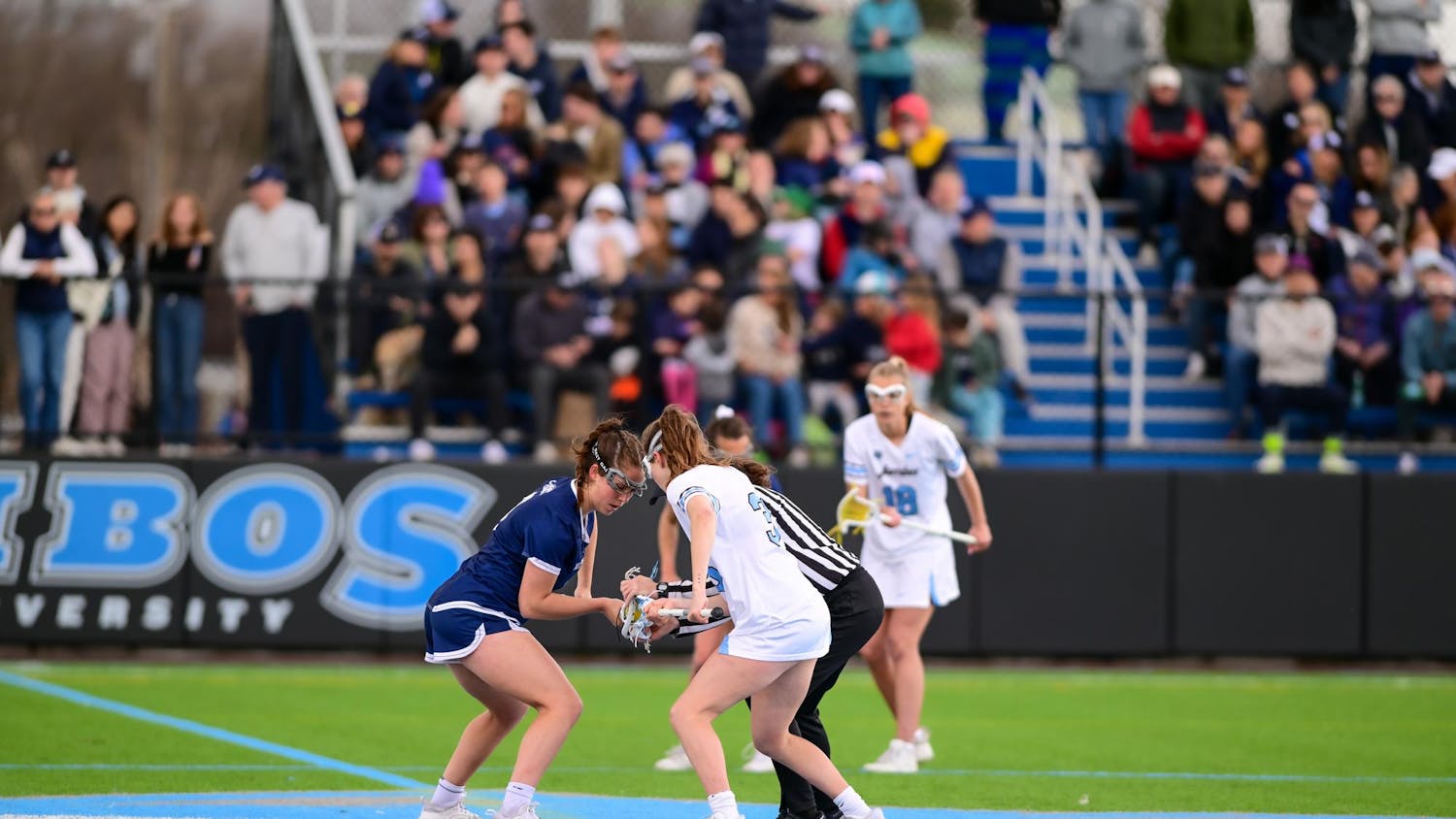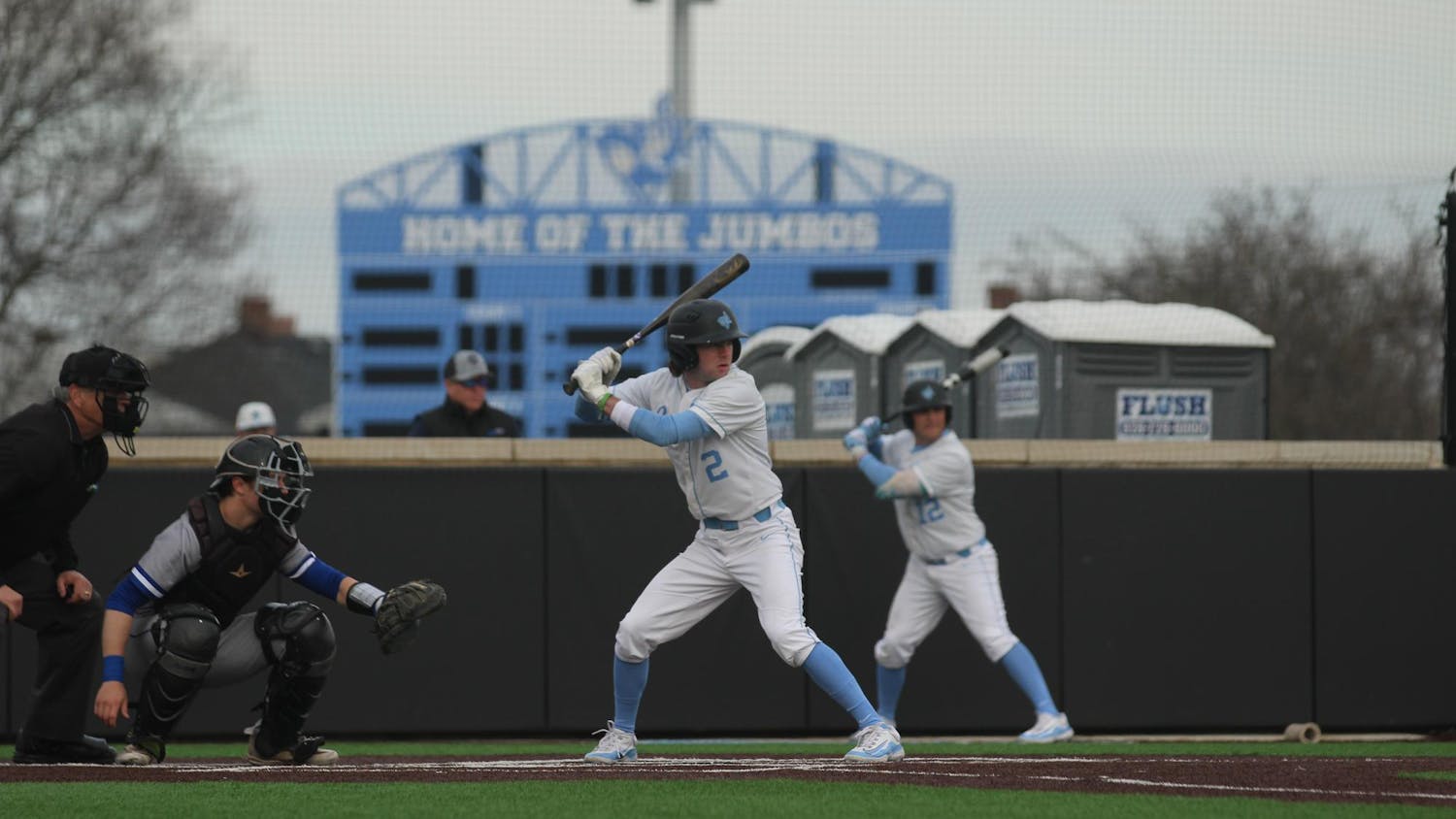Roger Federer's dominance was just another part of my childhood, a given. It was as predictable as gravity, as perfunctory as another school year, as constant as my mother's love. I never questioned it, tried to explain it or put it into context. I merely accepted it as fact: Everyone was playing tennis and this guy was playing another sport entirely.
As such, I've been thrown into a beginning-of-real-life crisis. Roger's consecutive Grand Slam final losses to Rafael Nadal on grass, and now hardcourt, have left me feeling totally unsettled. I felt like I did when my dad got too old and slow to beat me in one-on-one. Or when I found out my sister, the straight-A student of the Jacobs family, actually lost the fourth grade reading competition. It's hard to see chinks in the armor of your heroes. And when you do, it shakes your foundation.
When Fed's forehand flew long and Rafa fell to the floor in ecstasy, I got the feeling in my stomach that you get when you're running downstairs too fast and miss a step. The mighty — my mighty — had fallen. Fed lifted the "thanks for playing" silver plate, and I felt lost.
I was forced to accept, for the first time in my tennis-aware life, that the guy playing the best tennis in the world was not Roger Federer (I was fresh out of the womb when Pete Sampras won his first Slam). And is there really any doubt of that?
When Rafa won Wimbledon, the Fed loyalists were deeming it a fluke. Nadal was an unstoppable force for the entire tournament. His game was so unaware of itself. It was so innate, intense and quick that it made a then-26-year-old Federer look, dare I say it, old. I'm not saying Federer looked bad in the five-set thriller at the All England Club; in fact, most "experts" contend he played well. I'm just saying Nadal looked good; he looked historically good.
So, when Federer took his fifth US Open title in September (he didn't have to face Nadal, who lost in the semifinals), the Fed loyalists assumed order was finally restored in the universe. That the world, once again, was subject to the laws of tennis:
Section 1: Roger Federer is the best ever.
Corollary A: He doesn't lose on grass or hardcourt.
But last week it happened again, and this time, it can't be called a fluke. Nadal was physically worn down by his intense hardcourt schedule in preparation for the Aussie Open. He was visibly not as fresh as he was during his masterful run at Wimbledon. But he did what all the greats do, what we've seen Federer do time and time again; he willed a win.
And with this victory, it's becoming increasing clear that Rafael Nadal is the greatest talent a tennis court has ever seen. Yes, the greatest ever. This isn't something that I can back up with stats, records or achievements (yet); but as my fellow columnist David Heck pointed out last week, it's just something that you see and feel when you watch Rafa play. We are talking about athletics at its most basic and fundamental form. And Nadal is, right now, in his current athletic build and state of mind, the best there has ever been. For a long time Federer looked like a man among boys; right now, Nadal looks like something else entirely.
I hope I'm wrong about this. I have always loved Roger, the champion of my childhood. And maybe he can pull a "Rocky in Russia" and make that now hugely important statement of beating Nadal on the clay of Roland Garros. Maybe he can take back the Wimbledon crown, repeat at the Open and reassert the previously mentioned "laws of tennis." But maybe he can't. Maybe the predictable dominance, the "Reign of Roger," and my childhood along with it are truly over. And if they are, well, that just plain blows.
More from The Tufts Daily





